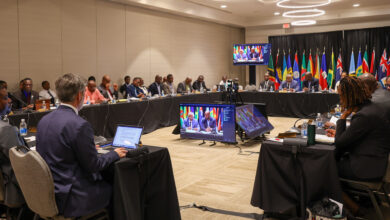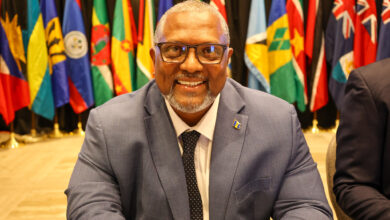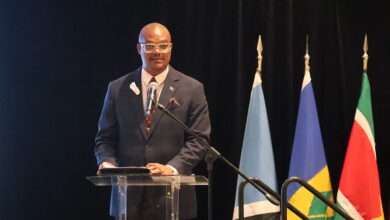(CARICOM Secretariat, Turkeyen, Greater Georgetown, Guyana) A major challenge facing the agriculture sector which needs to be addressed urgently is the lack of information from the sector to the public.
To this end experts in agriculture from Africa Caribbean and Pacific (ACP) states have agreed that they must build relationship with journalists as a means of bridging the information divide.
“We in agriculture don’t believe that we need the media. We do because we need to communicate with people about the work that is taking place in the agriculture sector, about the challenges that we face and the opportunities that exist. We need to look at building some level of partnership with the media,” said Dr. Arlington Chesney, Executive Director of the Caribbean Agriculture Research and Development Institute (CARDI).
Journalists attending a seminar on the “Role of Media in Agricultural and Rural Development in ACP countries” in Belgium however, expressed the view that officials in the agriculture sector did not reach out to them as a matter of course. Some Caribbean journalists in attendance added that often the experts spoke in jargon which they were forced to translate and interpret but which posed a challenge because as journalists, they were not experts in the field.
The journalists were adamant that their job was to convey information to the public, and suggested that state agriculture agencies as well as ministries of agriculture should employ communications specialists to develop and implement communications strategies, package and disseminate information and interface with the media.
A lecturer at the Caribbean Institute of Media and Communication (CARIMAC), a specialist school of the University of the West Indies (UWI), stressed that in any field it was important to have communications specialists who were equipped with the knowledge and who had access to information that would be needed by journalists.
“It is not the job of the journalist to interpret technical language and policy coming from agriculture or any other expert for that matter. This is the role of the communications specialist. The journalists’ role is to convey the information. Of course some understanding of the subject is important but the agriculture expert ought not to rely on the journalist to translate and interpret policy,” said Dr Maria Potz.
“I must however, add that I believe that journalists should get an understanding of any specialized issue that they are reporting on. In the case of agriculture, it helps to get to know the policy people as well as the people in Extension Services as they are both valuable sources of information,” she added.
In addressing the call for media houses to ensure that journalists were exposed to training to become specialists in agriculture, the view was expressed that this was not possible across the board in the Caribbean.
“Our media houses are small in both size and staff and therefore cannot afford specialists reporters as a matter of course. However, if people are trained in the fundamentals of good journalism then they will be able to report on just about everything,” said Caribbean Media Trainer, Johnson Johnrose.
The Association of Caribbean Media Workers has given an undertaking to work with the relevant regional agencies to explore avenues for training of journalists to better equip them to report on agriculture issues. The Association’s Vice President, Mr. Peter Richards said any training in this area would be most welcome.
He added that under the CARICOM Single Market journalists are among the category of persons who had a right to Free Movement, and training would assist journalists to beef up their skills which they could market across the Region.





